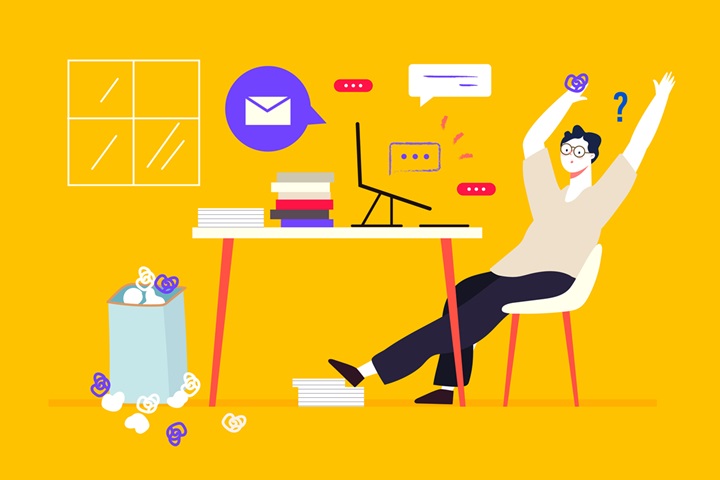As per reports
Majority of working Indian’s are suffering from lack of sleep i.e. sleep less than 8 hours everyday.In the present situation where each individual is completely occupied with responsibilities or work, end up their day with a ‘Phew!‘. We often tend to say ‘Let me sleep for 5 more minutes’ when our all-time enemy Mr. Alarm wakes us up in the morning without realizing importance of our of sleep.
Questions we usually get or ask ourselves due to lack of sleep:
- Why do i forcefully get up every single day?
- I am always lack of sleep, But why?
- Why are you sleepy whole day at work?
- Am taking more time to complete a task sometimes; Not sure, why?
- Why can’t we complete our required sleep hours and then begin the day with full enthusiasm and fresh mood?

Per the current trends,
Average human beings sleep between 10 PM to 6 AM, however few of them either tend to get inspired by Sir Abdul Kalam’s quotes “Dream is not the thing you see in sleep but is that thing that doesn’t let you sleep” or “some dive so much into laptop or mobile that they tend to forget about sleep”. As a result you end up sleeping around 2 AM or 3 AM or even 4 AM sometimes which is still acceptable if you sleep for next 7-8 hours but the problem occurs when you wake up at 7 AM – 8 AM to get back to daily race of life.
Try this! A small experiment folks.
For next 1 minute don’t think anything. Keep your mind blank.
(Pause)…….
Try!!
Caught you! You were still thinking of ‘NOT THINKING ANYTHING’.
The prefrontal cortex is still functioning. Sleep is the only way to rest your Prefrontal cortex in order to utilize it better for the rest of the day / next day.
Our health is directly proportional to our sleep. In fact, both are interdependent on each other. We observe the decline in the sleeping hours with age. The below table is self-explanatory on the ideal sleep hours for all the age groups. If followed properly, we can avoid many health related issues.
| Category | Age Group | Ideal Sleep hours |
| New Born | 0-3 months | 14 – 17 hrs |
| Infants | 4-11 months | 12 – 15 hrs |
| Toddlers | 1-2 years | 11 – 14 hrs |
| Preschoolers | 3-5 years | 10 – 13 hrs |
| School going children | 6-13 years | 9 – 11 hrs |
| Teenagers | 14-17 years | 8 – 10 hrs |
| Youth | 18-25 years | 7 – 9 hrs |
| Adults | 26-64 years | 7 – 9 hrs |
| Old-aged | 64 & above | 7 – 8 hrs |
Lack of sleep leads to following adverse effects:
- Lack of Concentration, reasoning power, alertness, problem solving capacities.
- Reduces learning capacities.
- An unhealthy or improper diet followed with no sleep or less sleep hours leads to OBESITY.
- Lack of sleep increases blood pressure due to stress.
- It also weakens the immunity system, which is otherwise designed to protect us from cough, cold, flue etc.
- Disturbed mind.
- Leads to skin damage, hence you would grow old sooner than the actual rate.
- Have negative impact like long and short term memory loss.
- Harms your heart. Beware! <6 hours of sleep leads to a greater risk of coronary heart disease and strokes as well when compared to people having 7-8 hours of sleep. All above mentioned consequences can be avoided just by providing sufficient amount of sleep.
Is a quick nap after Research activity / study / brain-storming session or anything that involves learning recommended?
A nap after study is like hitting CTRL+S (save option) after creating a content. If you save it, it will remain in memory else you might loose. Similarly, information is saved in memory at a much higher rate when you have a nap after study. Memory slip rate slows down when one sleeps after studying. This suggests that, getting adequate sleep is a critical part of learning something new, and plays an important part in stabilizing new memories.
Thus,
Increase overall productivity. Sleep scientists’ studies have shown that 90 minutes of sleep is advisable after study. Sleep helps one to re-analyze his or her memories, leading to increased insight. As the day wears on, a degradation in thinking ability is observed. For a few, an afternoon nap increases learning capacity, and for others, it’s a cup of caffeine. To simply brief it out, researchers say sleeping just after studying improves one’s ability to recall information. However, we should also accept the bitter truth that memory-enriching sleep stages start declining in our late 30s, though research on how to enhance these stages in old age is still going on.
WORK will still be there in the morning, a good-night sleep won’t be.
SLEEP is a vast subject in all. It really plays an important role in our lives. In short Don’t neglect it. We at JUMPWHERE have tried our best to picture it’s importance and if this would bring a change in even a single person’s Timetable, we would consider our goals achieved for this article. For more information on sleep we would suggest to read ‘DREAM LAND- Adventures in the strange science of Sleep’’ – by David K Randell. Don’t forget to share us your story in the comments below on What keeps you awake at late nights and causes lack of sleep.
Meanwhile also read:
- Top 10 things people do at Office restroom apart from Normal job!
- 10 awesome insights about Procrastination at work
- Not all smokers smell bad, for SITTING is the new smoking!
- Just like men, women also need stress free weekend
- 10 Tips to achieve your New Year resolutions
- Its possible to achieve GOALS if they are SMART GOALS


